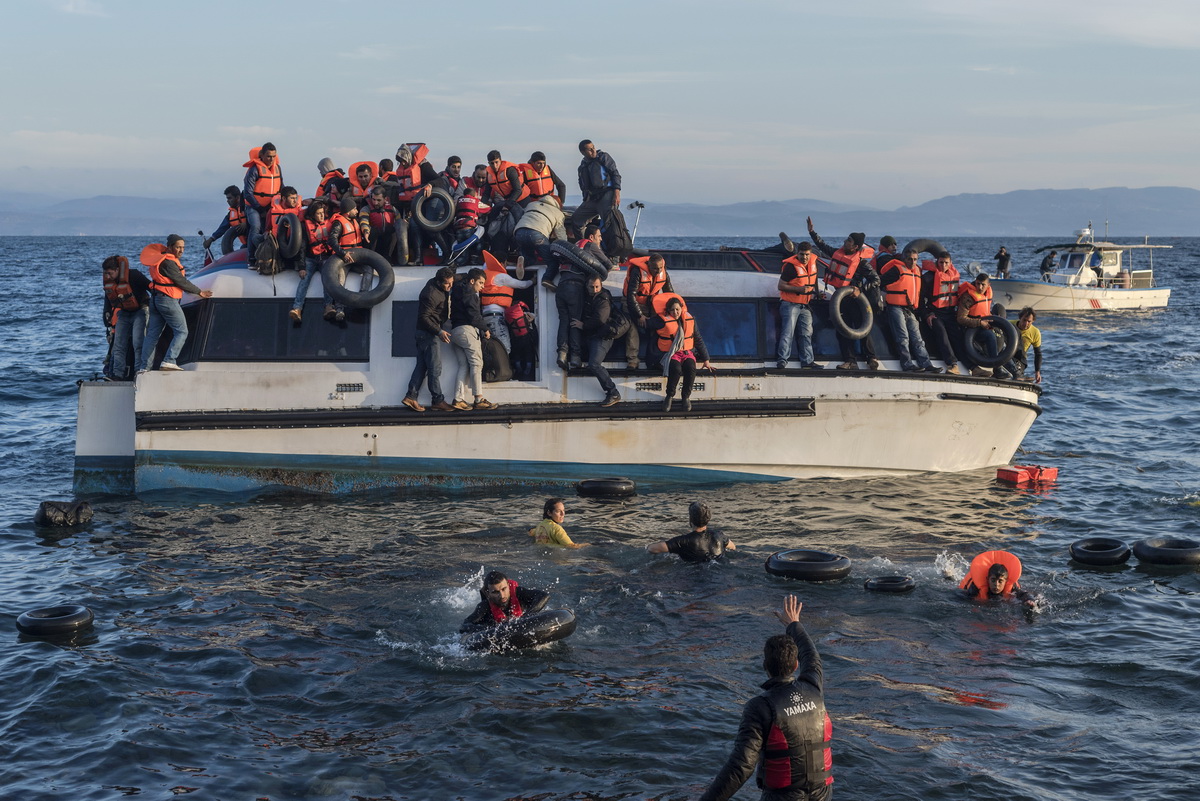According to IOM, up to June 2016 more than 2500 migrants have lost their lives in the Mediterranean Sea in an attempt to flee hunger, persecution, and war. As an effort to fight the business model of migrant smugglers and save lives at sea, the EU has initiated EUNAVFOR Med, also known as Operation Sophia, in June 2015.
After gathering intelligence on human smuggler networks Operation Sophia has proceeded in October 2015 to board and seize vessels in the Mediterranean, off the coast of Libya, suspected of being used for human smuggling. With more than 800 000 migrants waiting in Libya to reach Italy, the central Mediterranean Sea could soon become the new Aegean Sea, due to the near shut down of the eastern route by the EU-Turkey Agreement. The latest extension of the mission’s mandate include, among others, the training of the Libyan Coastguard and navy to incept boats suspected of human trafficking. While it seems that Operation Sophia is a forward-looking initiative to avoid more tragedies at sea, human rights organizations disagree. And here is why:
UNHCR has registered 9,3000 refugees and 28,268 asylum seekers in Libya in May 2016. However, Libya has neither ratified the 1951 Refugee Convention (nor its 1967 protocol) and does not have asylum legislation. It is completely legal to detain a person indefinitely for irregular entry, stay, or departure. Hence, migrants on boats intercepted at sea or checked for papers on the street are detained in camps for an unlimited time, without being able to contact their families, lawyers, or judges. Human Rights Watch and Amnesty International document abuses in these camps consisting of torture, rape, regular beating, forced labor, and killings, and report the conditions in the centers to be “abysmal”, including overcrowding, pollution, and a lack of nutrition.
Libya is a deeply divided country. After the NATO-backed revolution and the fall of Muammar al-Gadaffi, various groups have been vying for power in Libya. While the internationally recognized parliament had to flee to the far east of the country, the unrecognized National Salvation Government (NSG) took power over Tripoli. All this happened amidst the criminal schemes of various militias and gangs, as well as the presence of the IS. A UN-endorsed unity government took power in March 2016. The NSG has resigned and handed over power to the unity government. The parliament in the East, however, still has to endorse it. Therefore, Libya is lacking any sort of effective authority and can be considered a failed state.
The idea behind Operation Sophia is a good one. It does not simply save lives by rescuing people who are in distress at sea but it aims at long-term change by destroying smuggling routes and building capacity in key partner states in the fight of human trafficking. However, it effectively increases the number of boats intercepted by Libyan authorities, which results to more migrants being held in detention centers in a country with no refugee law nor effective law-enforcement. Due to the unstable conditions in Libya, the EU, bound by the principle of non-refoulement, cannot send migrants intercepted at sea back to the country. If these boats are, however, intercepted by Libyan Coastguard or navy, they can legally be send back to Libya due to their legislation of illegal entry, stay, and exit of the country’s borders.
Operation Sophia is part of a broader framework in the EU’s effort to manage migration. It is accompanied by a new Partnership framework which entails tailor-made cooperation with third countries of origin and transit. These are aimed at saving lives at sea, increasing returns, enabling migrants to stay closer to home and helping to address root causes of migration. Such comprehensive frameworks are the only solution to the complex problems we are currently facing. However, this complexity should also be addressed in the case of Libya. It is not enough to patrol outside the Libyan waters and train Libyan authorities. What is needed from the EU, is to pressure Libya into signing the 1951 Refugee Convention and its 1967 Protocol to create a firm legal framework to protect vulnerable populations. Additionally, the Libyan government has to be convinced to let humanitarian organizations take over the management of detention centers and allow their presence to document and report abuses. Lastly, the EU should support the UN’s Libya Humanitarian Response Plan, which only received 18.2% of its required budget in April 2016.
By leaving more people in the hands of Libyan authorities, the EU is shirking from its responsibility to give refuge to people fleeing war and persecution. To have an impact on the current migration flow, the EU cannot stop with training missions. It has to use all its international weight to lobby for legislative change, and prepare the ground for substantive humanitarian assistance.














Leave a Comment
Your email address will not be published. Required fields are marked with *